Part 15: Update 12 (Sept 1918 - Nov 1926): The Second Great War & Post-War Years

Brazil's entry into the war shifts the warscore slightly back in France's favor, but not by far. If we want to really help, we'll need to put our boots on the ground in France as soon as we can.
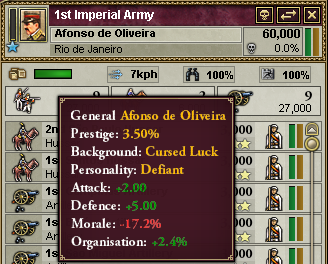
General Afonso de Oliveira will be leading our 1st Army, and his exceptional defensive skill will make this initial landing force resilient enough to survive until reinforcements arrive.
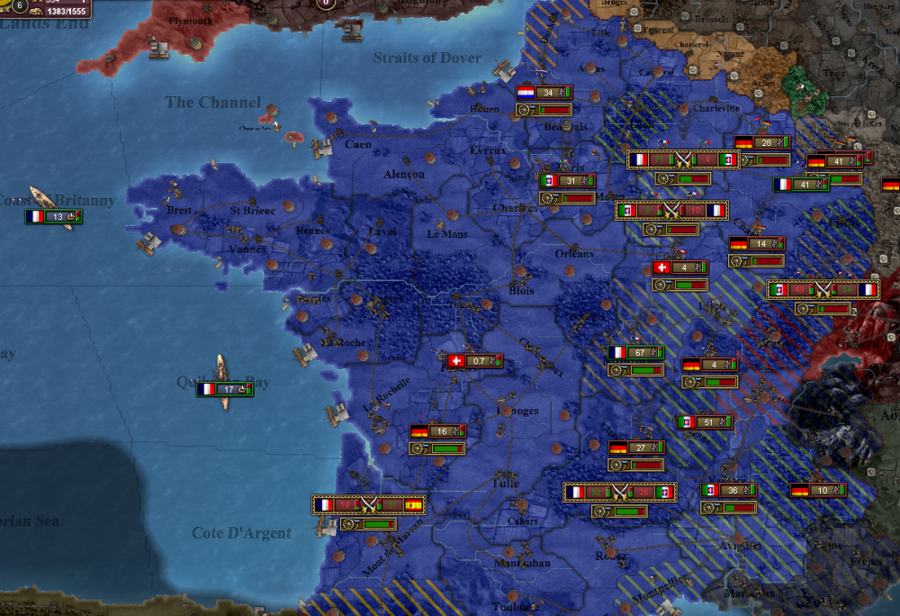
The situation in France is not a pretty sight. Much of the east is under the control of Italy, Germany, and other German allies such as Switzerland and The Netherlands. Spain is advancing from the south as well, presenting another front which must be dealt with. France still has a healthy number of active armies at home, but they are not enough to halt an advance this large and aggressive. The only thing which France seemingly has control of is the sea. Their navy is stronger than Germany and Italy, and there isn't a single enemy warship in sight. This will make the task of transporting our troops less hectic, at least.
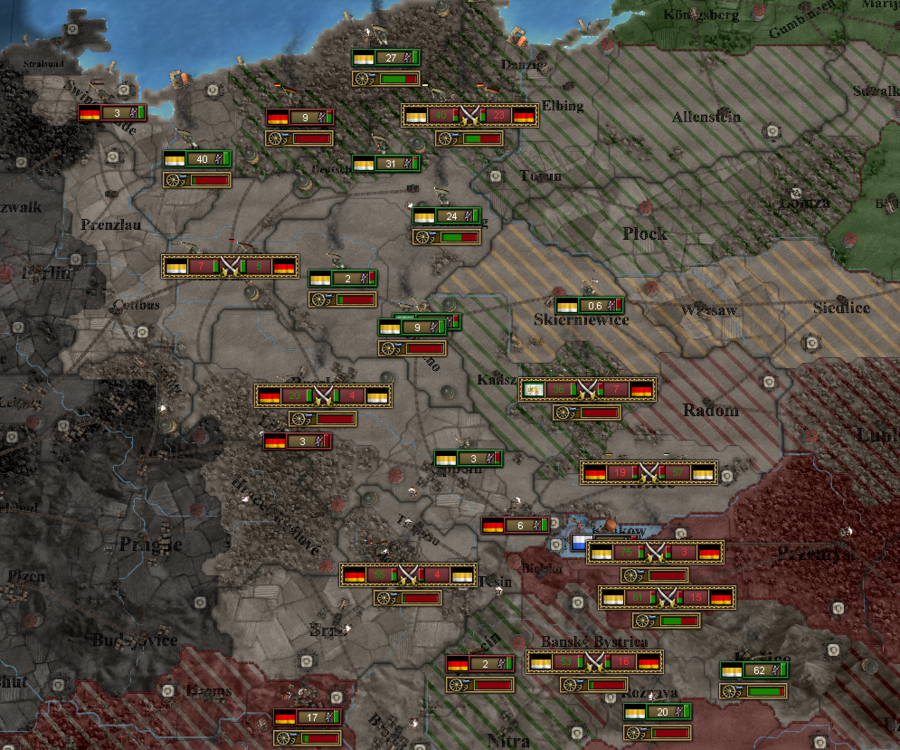
Germany is having problems of its own on their eastern border. A mixture of allied forces from The Russian Empire and Persia have pushed through their border defenses. Even if all we can do is distract our opponents from Russia, that may be good enough.
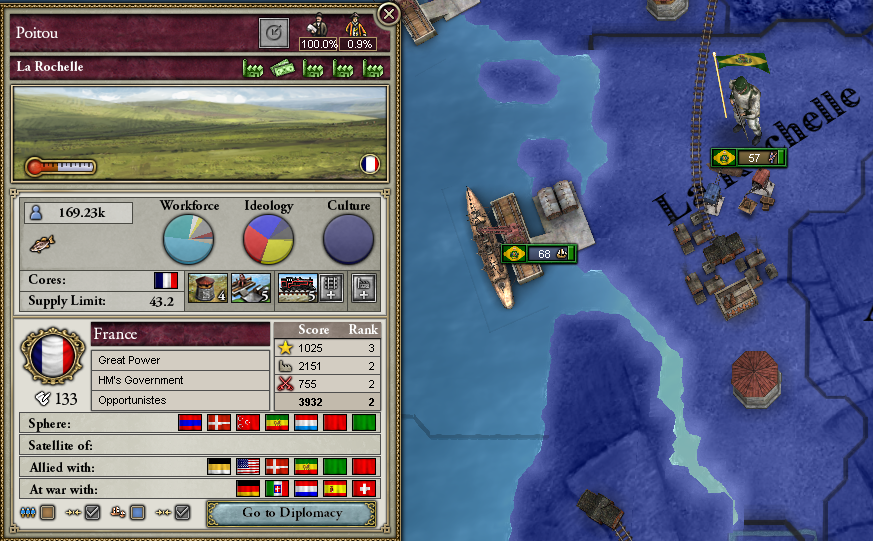
Our 1st Army arrives in Western France and our transports turn back towards home in order to bring additional forces. While the west is still relatively safe, there are still a few enemy forces probing around.
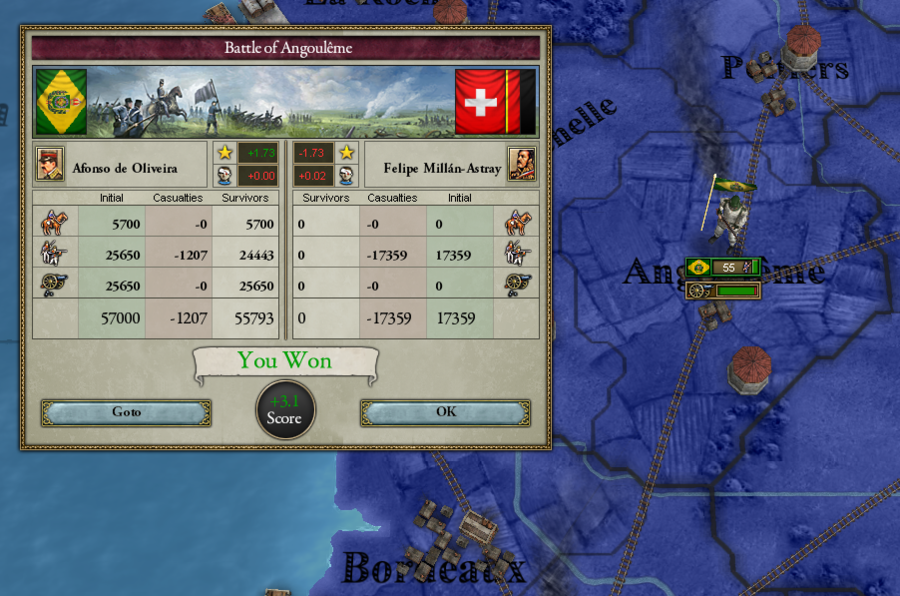
We attack one of them directly and begin to clear out the western countryside. From here, we can easily travel to the southern front, or to the east towards Italy and Germany as needed.
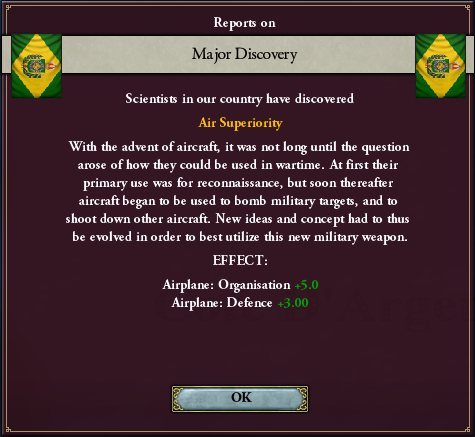
Our discoveries in the field of aeronautics continue to pile on, and we're getting to the point where I normally prefer to replace my cavalry with airplanes. I'm not going to attempt to dot this in the middle of the war though - it will have to wait until hostilities are over.
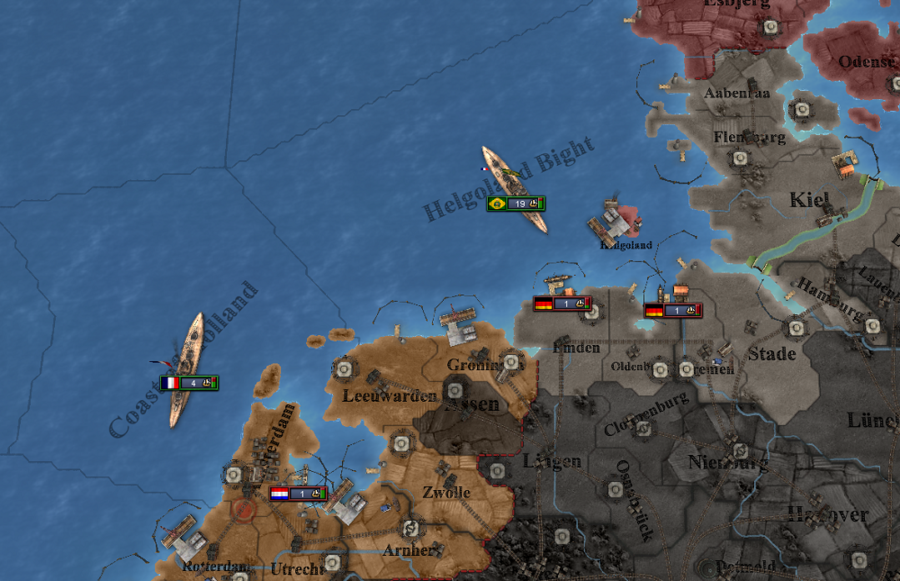
Just in case the Germans decide to surprise us with a battle fleet, we position our own off of their northern shores and add to the blockade.
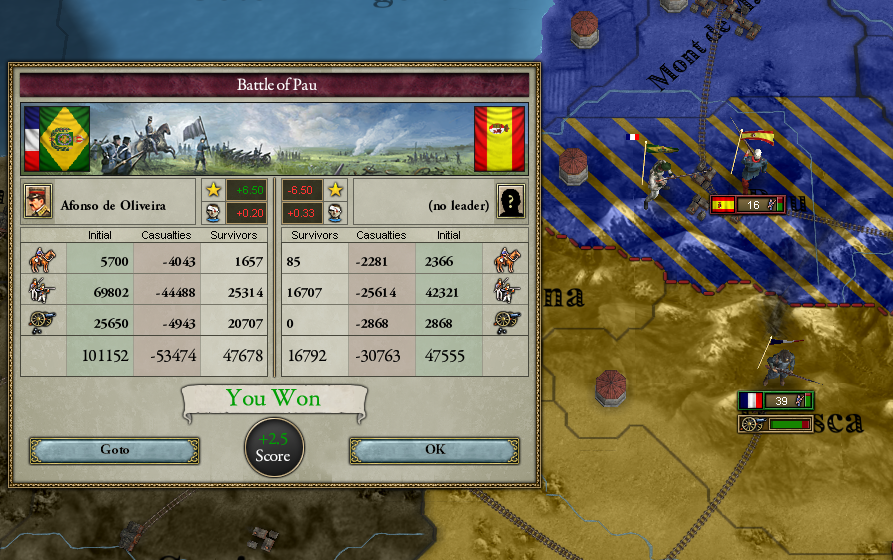
Dislodging the Spanish from the occupied French provinces in the Pyrenees Mountains is difficult, but it had to be done. Spain doesn't appear to have as many forces committed to this conflict, and crushing their pair of large local forces should give us time to turn our attention to the real threats - Germany and Italy.
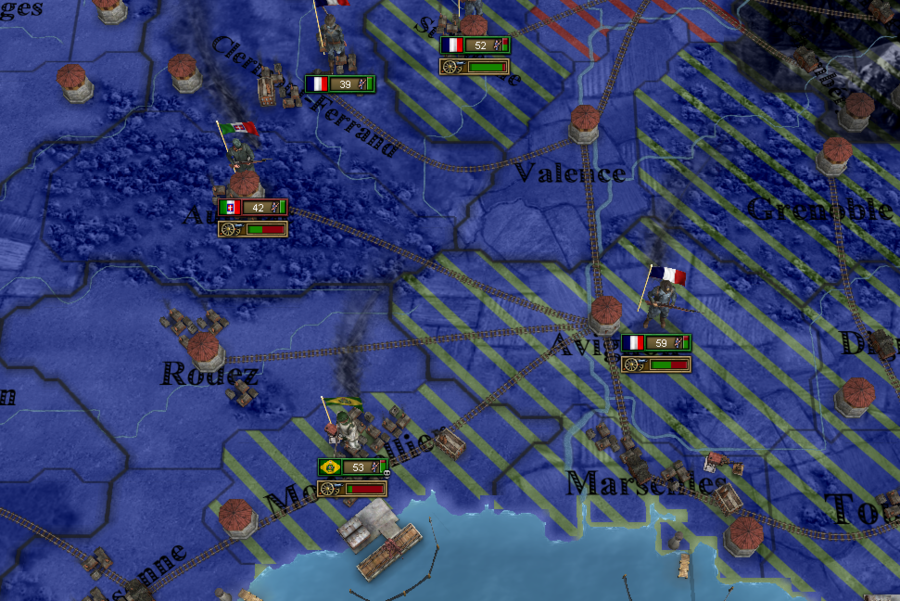
All seems to be going well in the south. Our 2nd army begins the liberation of Montpellier and then moves on to Marseilles. French forces in the south and central of France contribute to this push as well.
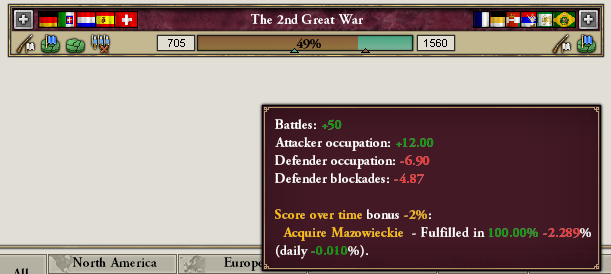
Despite our victories on the field and lifting the occupations in southern France, the warscore hasn't changed much. The German armies have simply won far too many decisive field battles before our arrival and they are pretty much capped at +50 contribution on that factor alone. It'll be hard to make up for that lead.
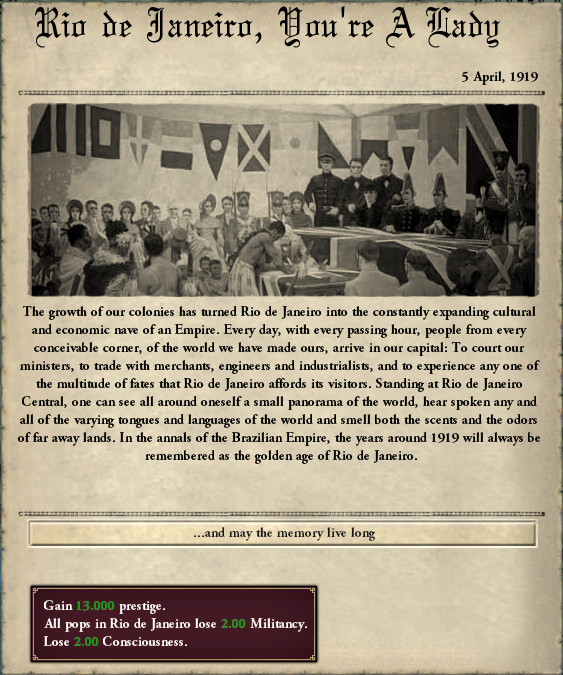
Despite the troubles in Europe, our homeland and colonies remain untouched by the war and thus enjoy prosperity.
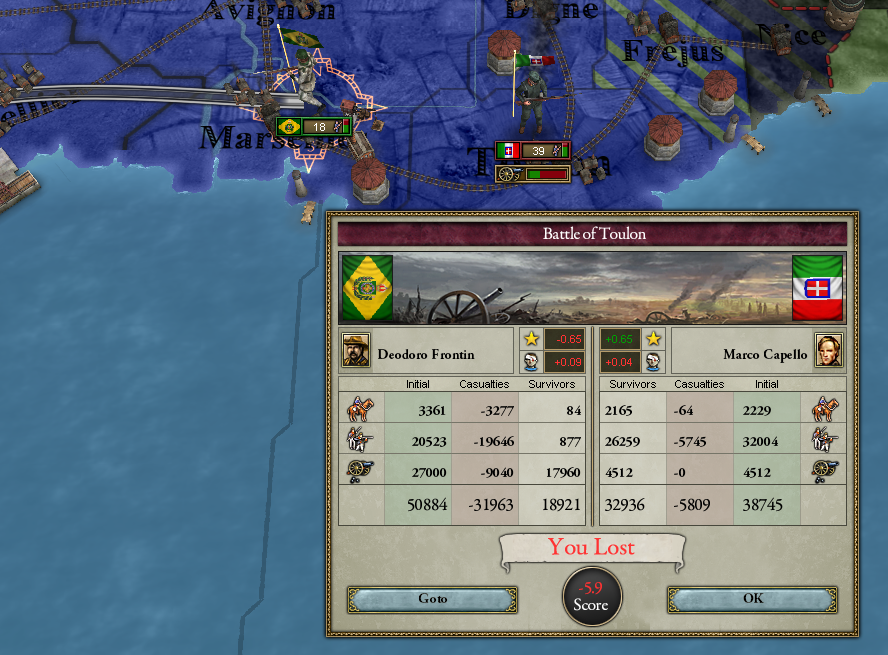
Our 2nd Army's progress is halted at Toulon by a fierce Italian defense. Our forces are forced to retreat to the safety of our other forces while they recover. The time it takes to replenish losses like this is time we don't have. We need to be more or less constantly fighting and constantly winning to turn the tide.
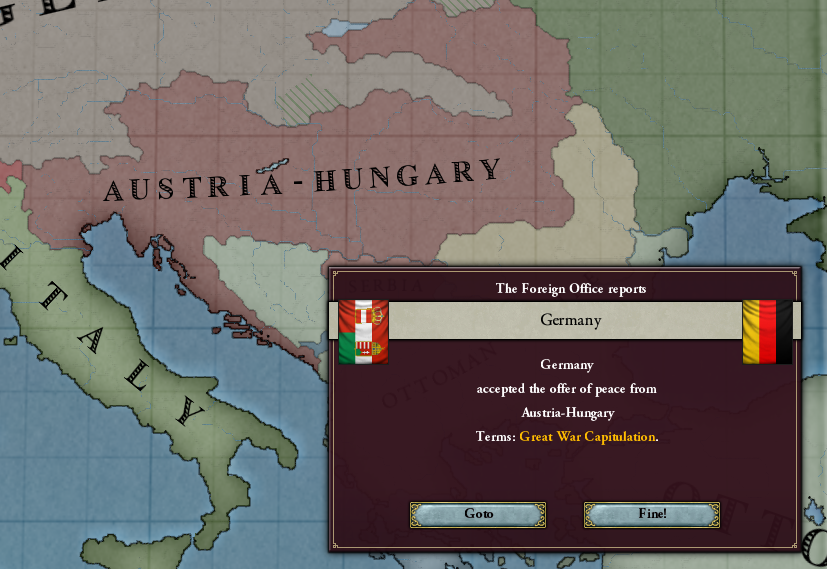
Austria-Hungary suffers a total defeat by enemy forces and signs a separate peace with Germany. They have effectively been out of the war for some time, with all of their armies defeated and the majority of their territory under enemy control.
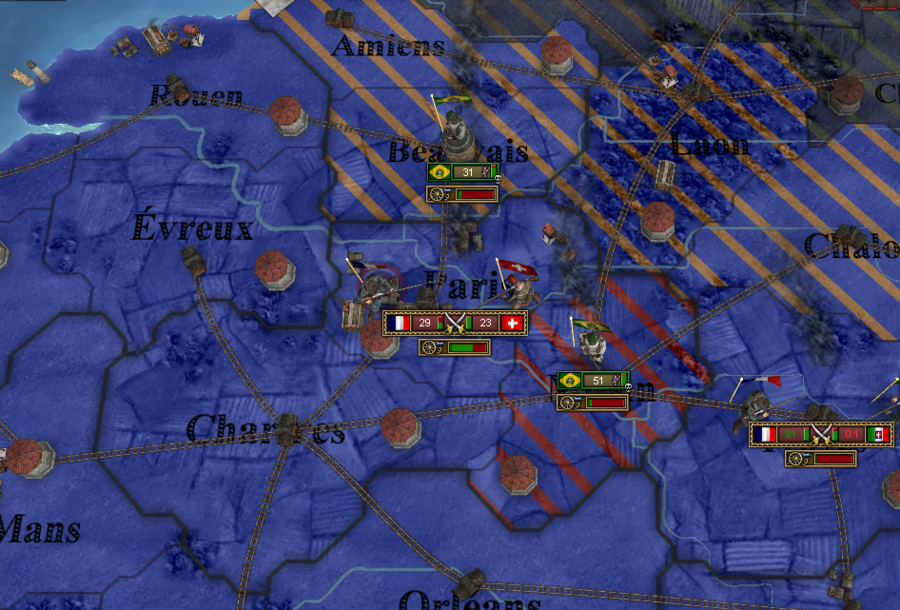
While recovering from engagements against the Italians in the south, our armies move north to the outskirts of Paris. Enemy forces have been operating too close to the French capital and I want to ensure that they don't capture it.
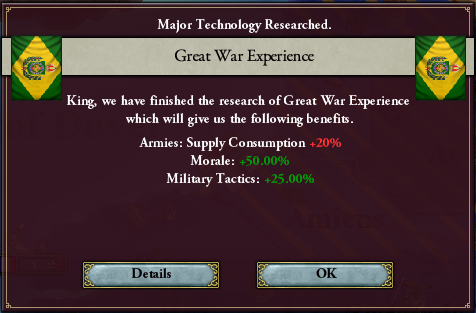
Our research is directed at the final row of army techs for the duration of this war. It's extremely important for our troops to be the best of the best in this conflict, since they are far from being the most numerous.
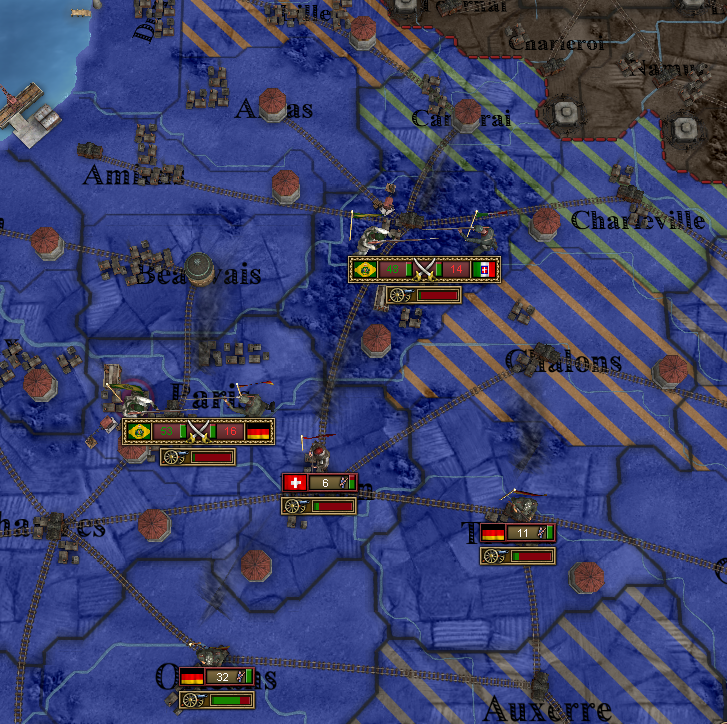
Our armies continue to see more success than failure, and I'm being very opportunistic about engaging out any smaller forces that are split off from larger armies. We just simply don't have enough people here, though. After nearly 2 years of fighting, its clear that this is a stalemate.
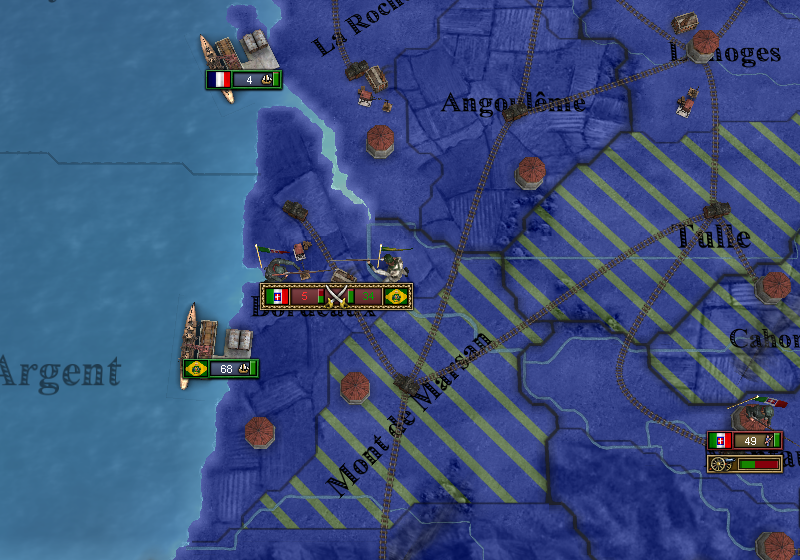
Our 3rd Army remains in Brazil to see to the defense of the homeland, but our colonial army is redirected to France to join in the fight. This smaller force will be used to lift occupations in less dangerous areas of the conflict.
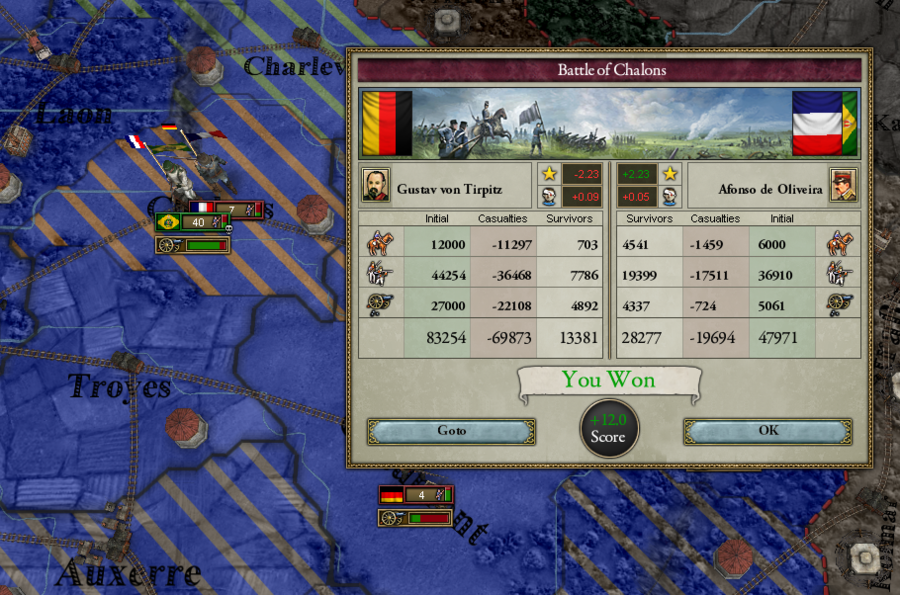
Oliveira gets a chance to display his defensive skills when attacked by a major German force. Despite being greatly outnumbered, he and a supporting French detachment deliver them a crushing defeat.

But still, the war is not going well. The quantity of active French forces are dwindling, and the German and Italian forces seem endless.
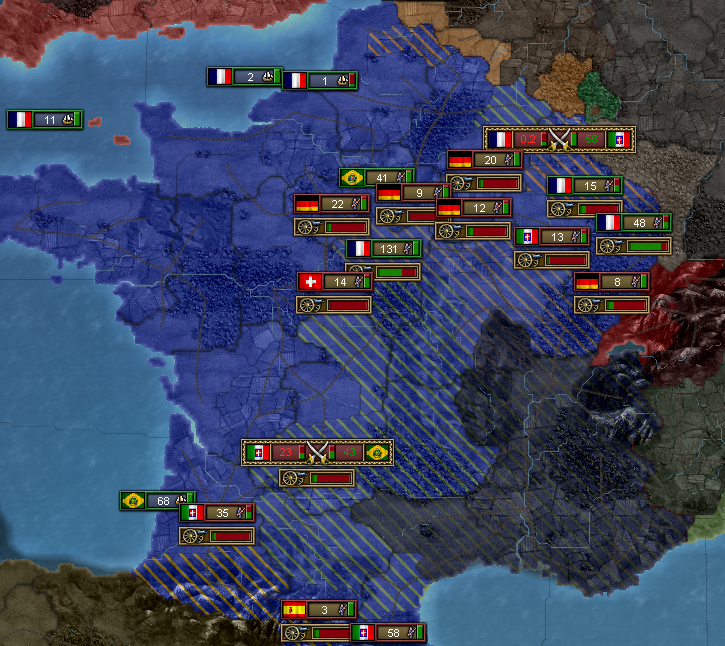
The tide is turning against us in France as Italy's occupation of the south advances. While holding back the Germans in the north, our Southern force simply can't contend against this advance. I don't want to leave Brazil abandoned, but we need more troops to make progress here.
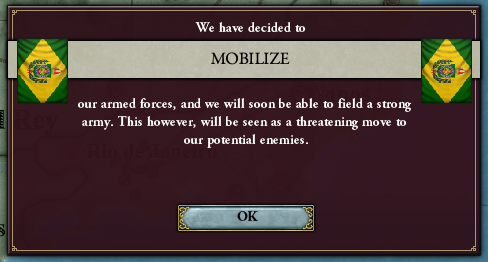
Rather than engaging our final standing army, I opt to mobilize our citizenry as a last ditch effort.
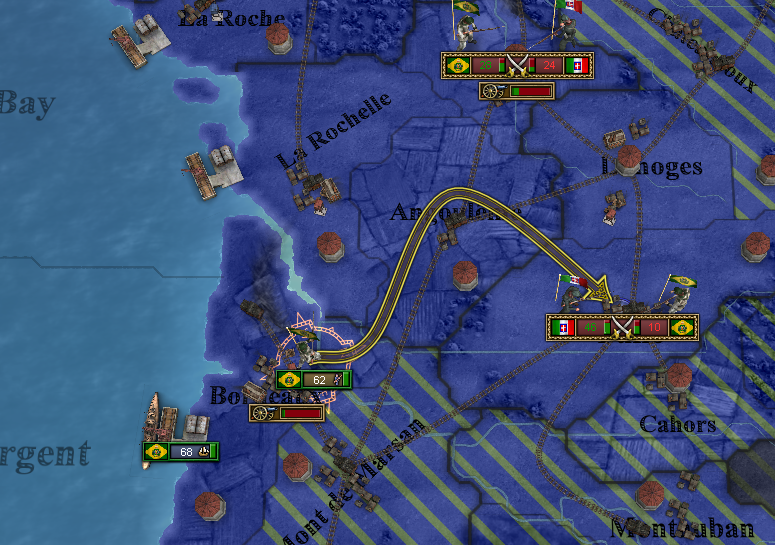
The first of our mobilized armies arrive in late late 1920 and immediately move to assist our beleaguered forces.
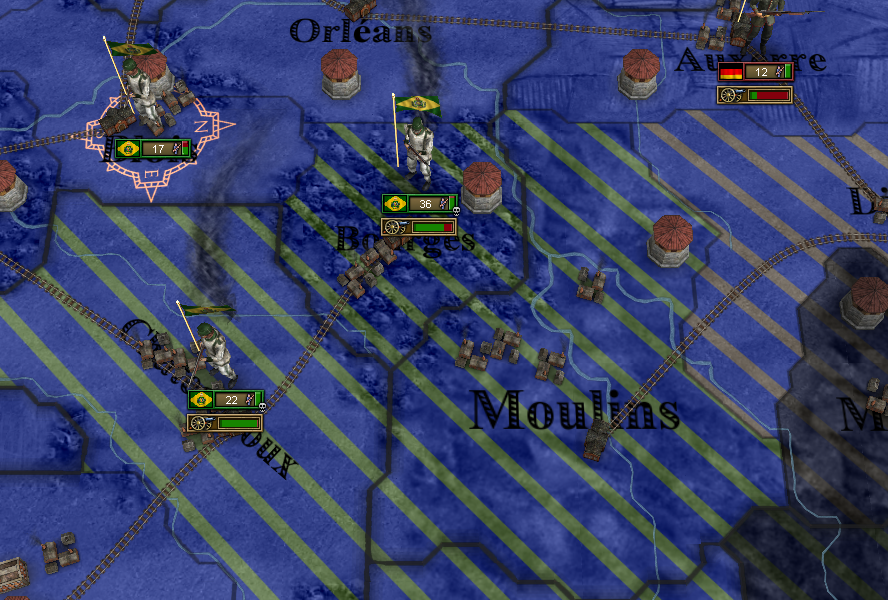
The arrival of this assistance gives us a large mass of forces that we can direct towards province occupation while our primary forces are set aside solely for battlefield engagements. For now, they need to rest and replenish.
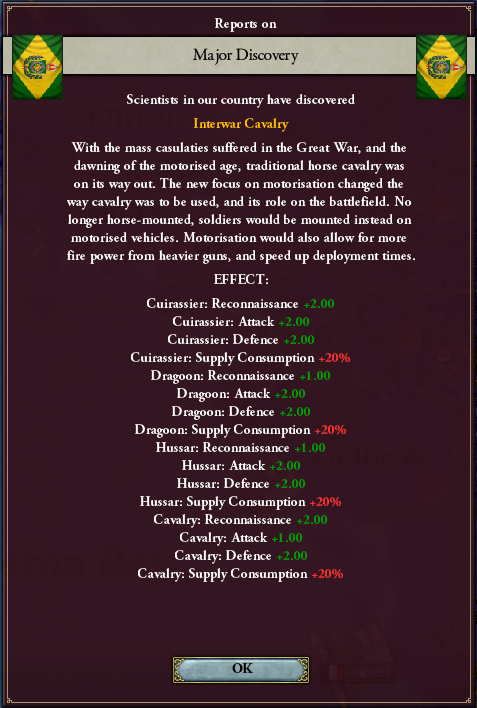
Advancements in technology continue to benefit our armies in the field. This invention describes how our cavalry at this date are essentially mechanized infantry now, moving in on motorbikes and armored cars instead of on horseback.
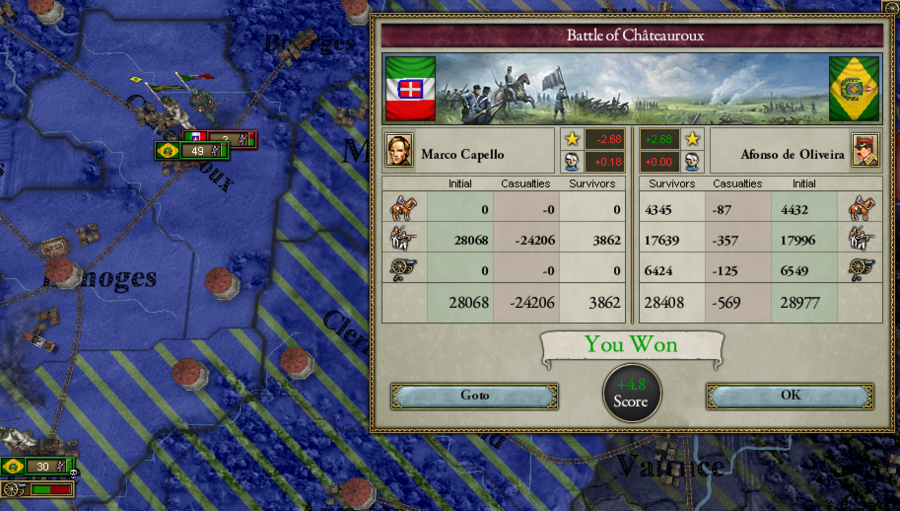
Our technological prowess serves us well, and Oliveira delivers another crushing defeat against the Italian forces.
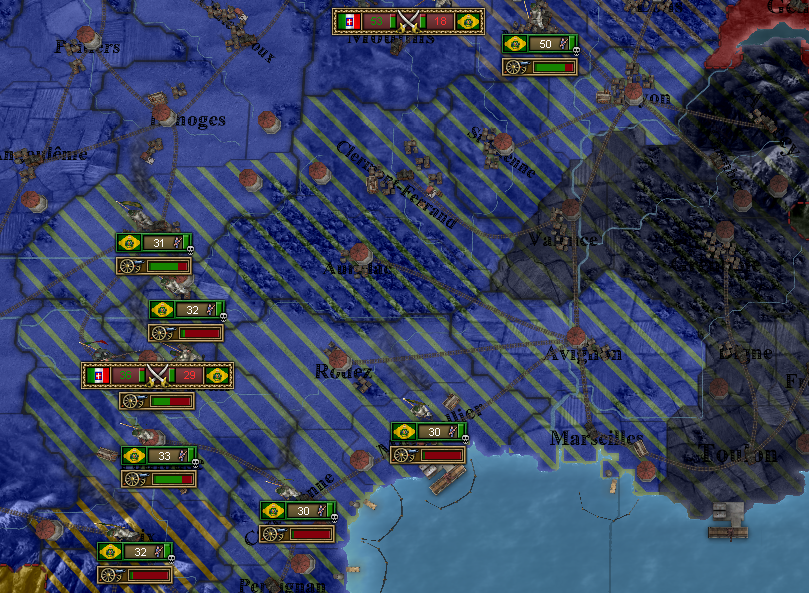
With the Italian armies mostly driven from the south, our numerous mobilized forces are left behind to break hostile occupations while our main battle forces move north to engage the Germans.
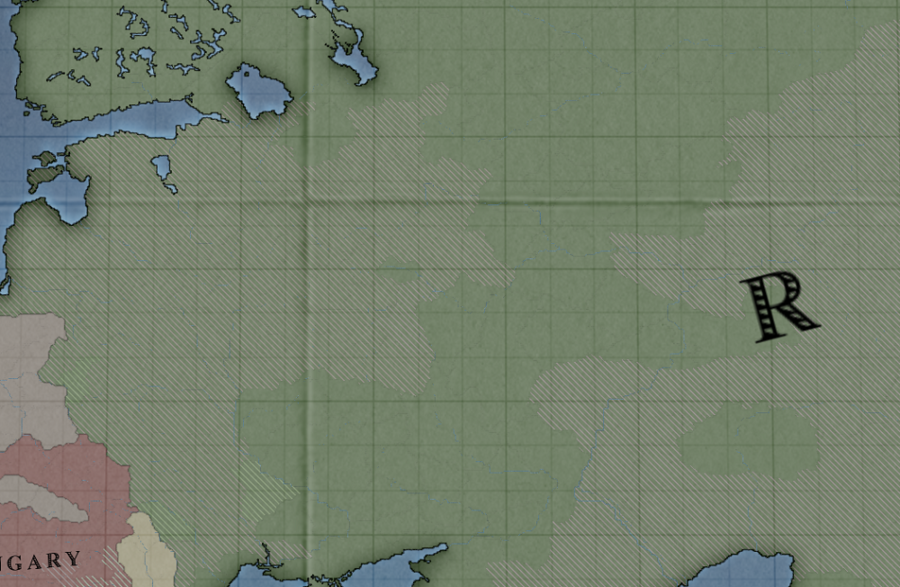
The Russian Empire's luck has run out. Their armies have been crushed in eastern Germany and a counter offensive has pushed deep into their territory. St. Petersburg is in the hands of the Germans, as well as all of Byelorussia and much of the Ukraine. You may be wondering why the German army has skipped over a strip of Russian territory only to continue occupation north of the Caspian sea and onwards to the east. The reason for this is that the eastern occupations aren't the work of Germany, but rather a massive communist rebel uprising.
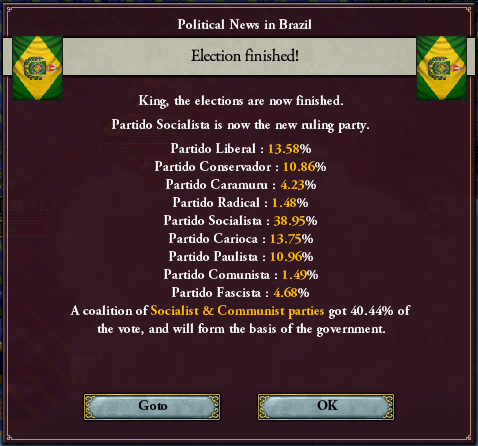
The elections of 1921 end with our socialist party retaining control of the upper house. We've been able to make some great strides with them in power, so this is good news to me.
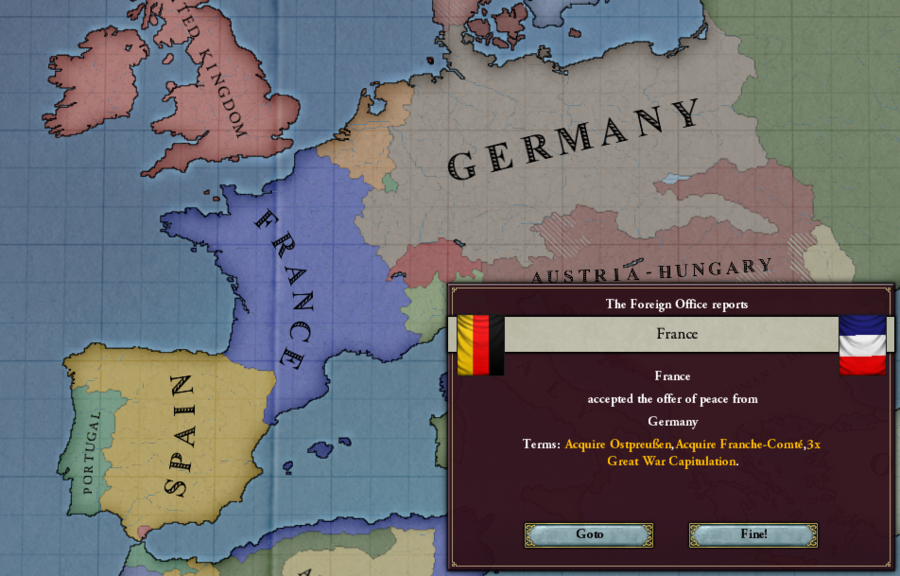
Shortly after our July elections, France surrenders unconditionally. Germany claims territory from both France and Russia in their victory in addition to the capitulation of all parties involved on Frances side - including us.
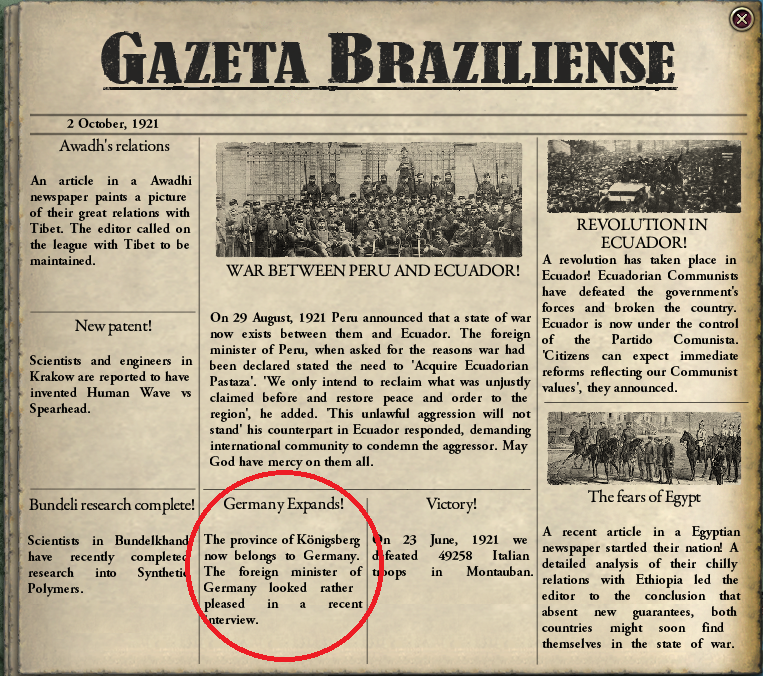
After nearly 4 bloody years, the 2nd Great War comes to an end. Our local papers struggle to find a place for this news on the front page.

We've suffered no territorial loss, but great war capitulation dictates that we owe war indemnities to Germany for 5 years. Yep, that's a payment of 1135 per day. Luckily, our economy can handle it if I simply turn up tariffs a bit.
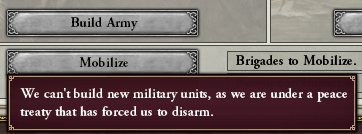
We are also required to disband a large portion of our military, and we are not allowed to rebuild any of our military for the next 5 years.
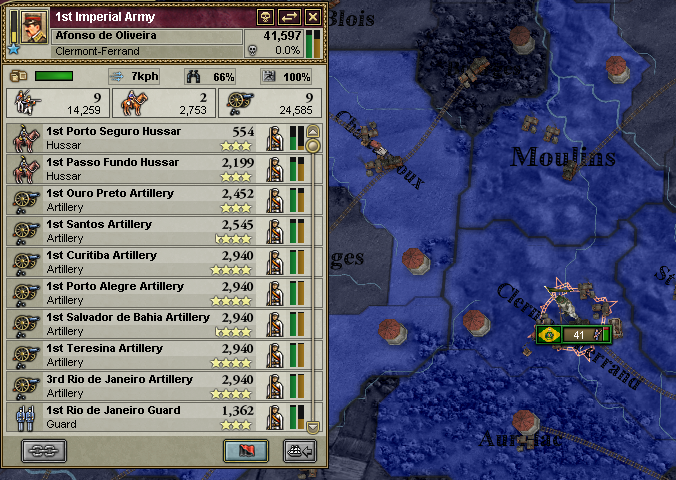
This results in Oliveira's army being stranded in France, because all of our navies were forcibly disbanded. In fact, our homeland guards were disbanded as well. Oliveira's battle-hardened army is the only remaining military force that we have, and it can't get home. If we happen to have rebel troubles in Brazil, we'll have to rely on our mobilized forces to handle it.
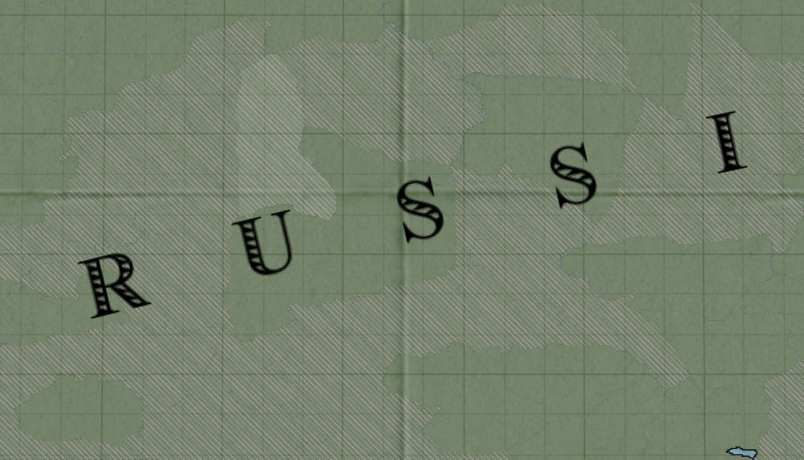
The Russian Empire is currently the poster child for rebel trouble. If they DID have any remaining army at the end of the Great War, it was disbanded by great war capitulation. Their uprisings are running rampant, with fascists and reactionaries staging their own rebellions alongside the already advancing communists.
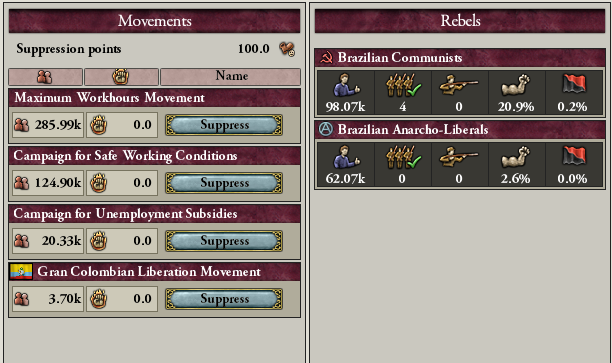
As it turns out though, our own population is relatively satisfied and unlikely to stage any such uprising even in this weakened state.
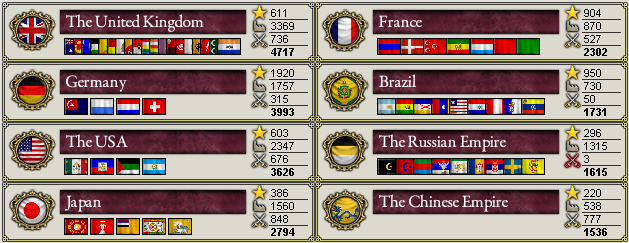
Germany launches itself into second place with their victory in this conflict. Our own position actually increases, even with our weakened military. Russia has a whopping military score of '3' due to capitulation disbanding their remaining military. The USA and the UK have enjoyed peace time, using the opportunity to strengthen their own positions. France has fallen far, to just above our own ranking.
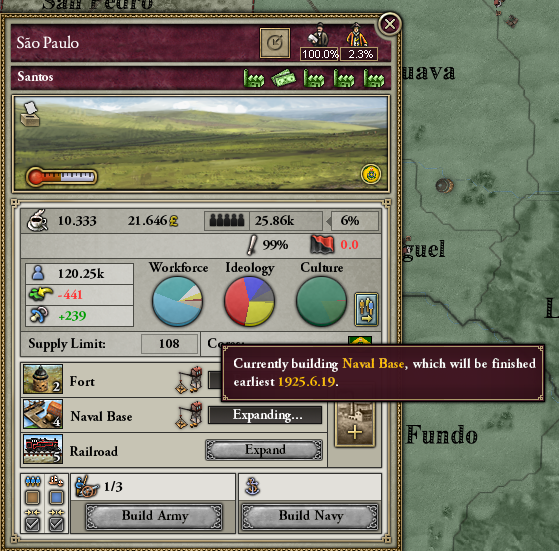
Thought we can't build our military up, we can strengthen our defenses and construct infrastructure to facilitate military buildup once our treaty with Germany runs its course. Forts will help slow the occupation of our provinces should anyone attempt to take advantage of our current weakness and the construction of larger naval bases will allow us to rebuild an even grander navy in the near future.
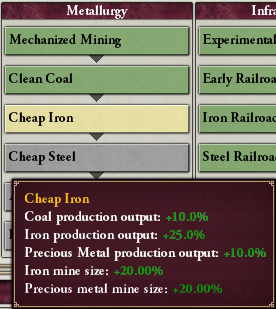
I also give some attention to the Metallurgy column for our next technologies. Cheap Iron and Cheap Steel both contain benefits for precious metal mining.
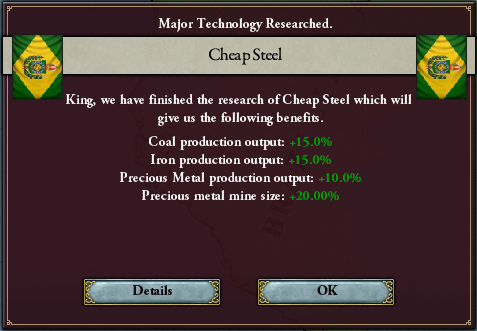
A total of +40% mine size and +20% production output for our precious metal mine is nothing to scoff at when it produced so much to begin with.
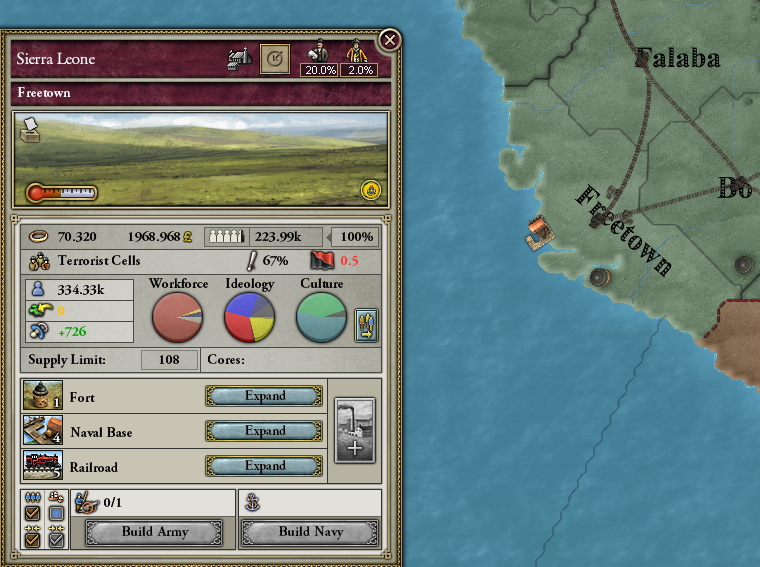
The value of production in Sierra Leone has grown significantly with these technologies.
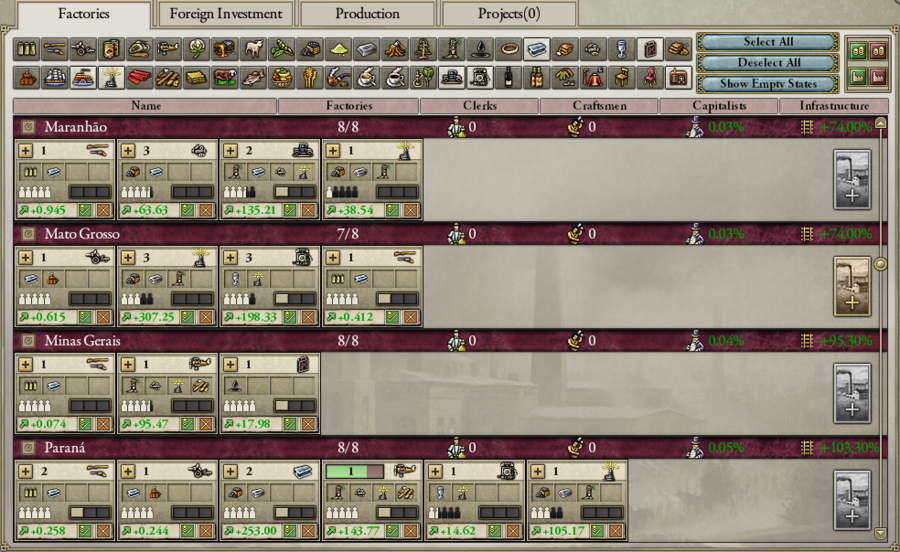
We've also taken advantage of our socialist party's economic policy to construct a variety of high tech industry across Brazil. Automobiles, airplanes, electronic components, telephones, fuel, and weapons are all produced domestically now and, in some cases, would be making a good amount of money even without subsidization.
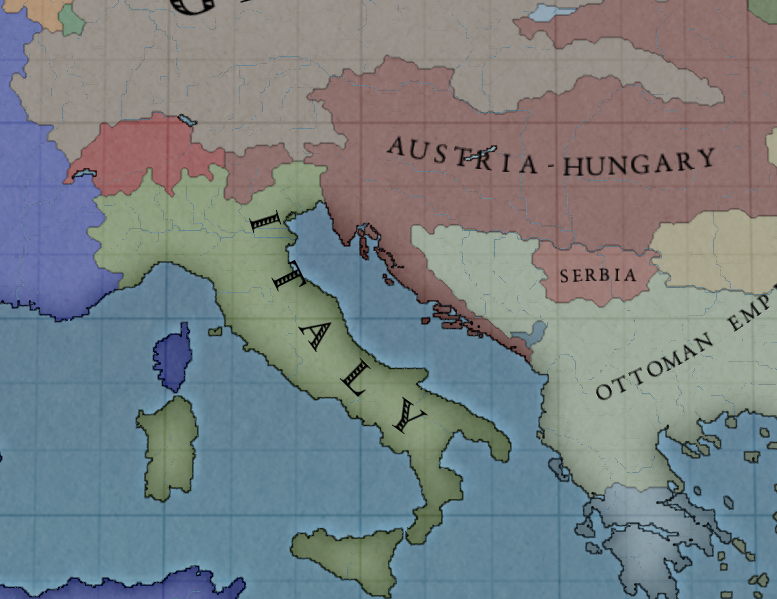
Italy takes advantage of Austria-Hungary's weakened state and manages to finally reclaims Venetia from them.
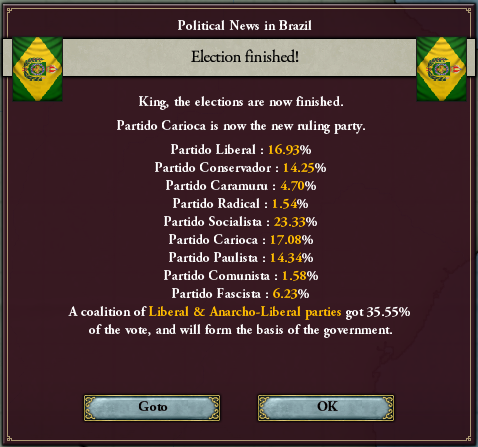
In the January election of 1926, our Liberal parties claim victory over our socialist party. I'm not really keen on returning to a lassiez faire party, but our economy is strong enough that we should be able to last until the next election at least. Hopefully by then, supporting socialist party loyalty will tip the elections in the other direction once again.
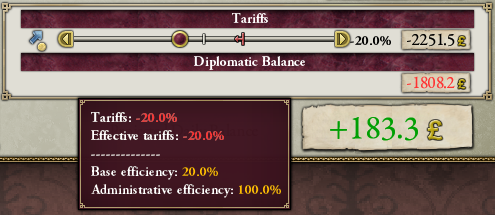
I am worried that our capitalists will shut down the advanced factories that I've constructed over the past few years, so I set down tariffs as low as I can while still running a positive budget. I can actually take them down to -20%. While we can't subsidize factories directly under a lassiez faire administration, we can effectively subsidize them by setting negative tariffs. This makes it easier for everyone (including factories) in our nation to buy goods from the world market.
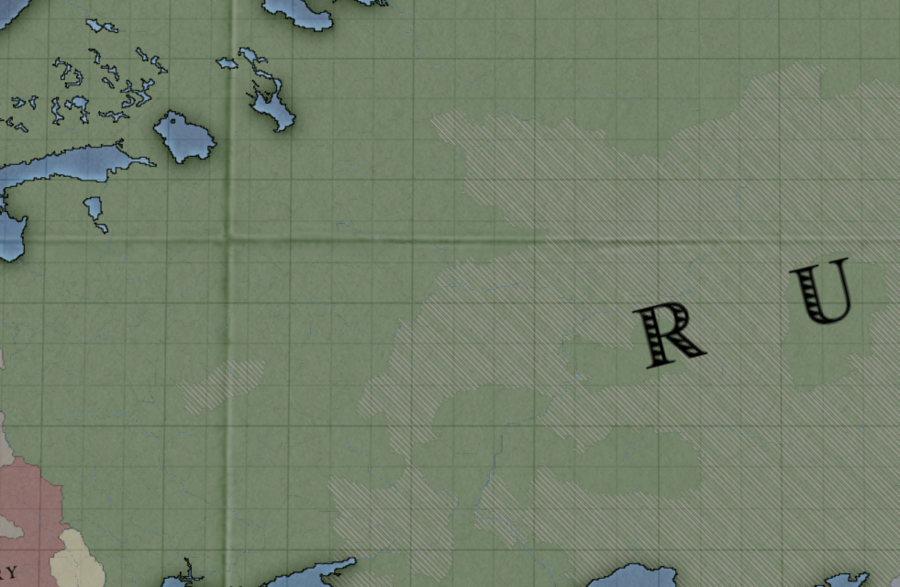
The Russian rebellions are slowly creeping west, but not at a rapid pace. If Russia can hold on for just another year or two, it may be able to construct new armies and fight back against this uprising.
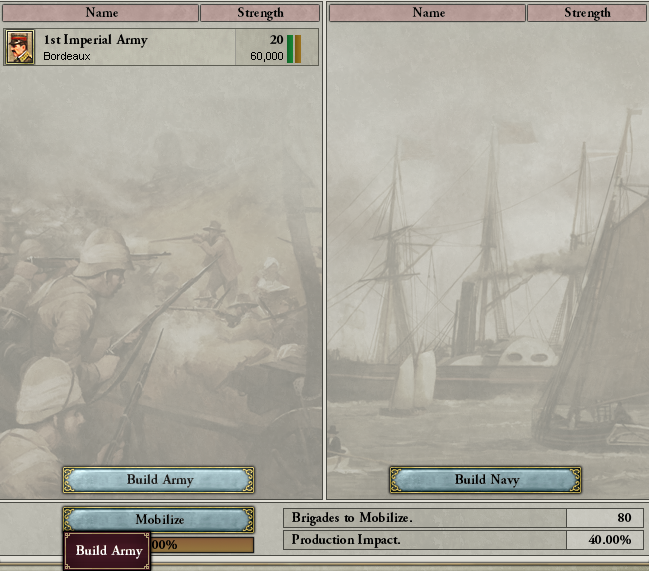
Finally, in late 1926 the harsh terms of our enforced peace expire. We no longer need to make statutory payments to Germany and we regain the rights to build up our military power. In the next (and probably final) update, we'll rebuild new modern armies and navies if for no other purpose than to raise our score and ranking. We should also consider whether any military action in these final years would be appropriate or even desirable.